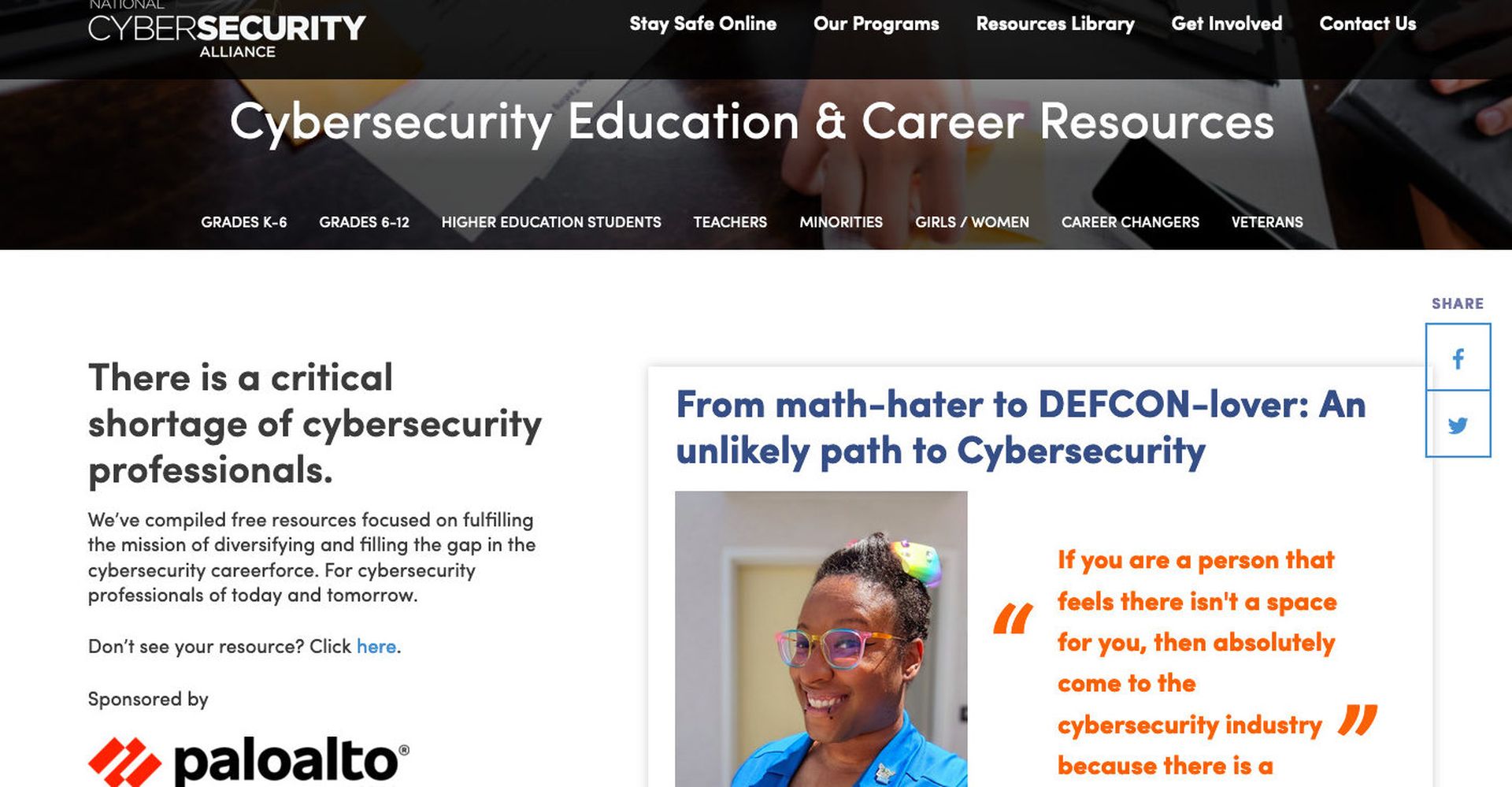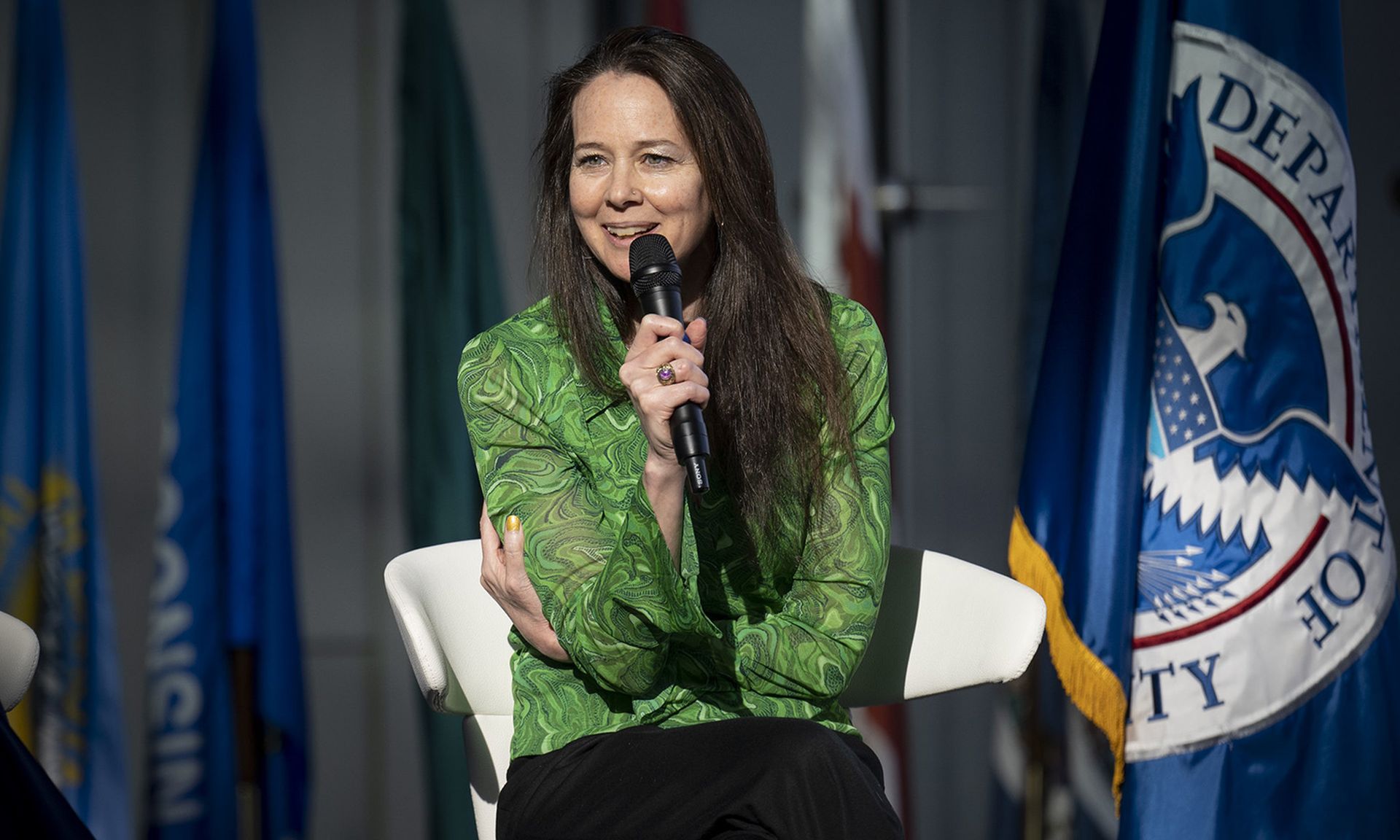Rather than having to aimlessly scour the internet for cyber content, aspiring professionals and educators with an interest in the infosec space can now pull up a central online repository of free resources to help them learn more about the industry.
With funding and sponsorship assistance from Palo Alto Networks, the National Cyber Security Alliance (NCSA) officially launched this brand-new Cybersecurity Education and Career Resource Library on Monday, as part of an effort to expose more individuals and private organizations to blog posts, webcasts, curriculum overviews, higher education program guides, job training information, mentorship programs, internships and apprenticeships pertaining to cyber. In doing so, the nonprofit organization hopes it is helping generate new infused talent, especially by appealing to women, minorities and veterans, as well as professionals who want to change careers.
“The birth of this came from us putting our thinking caps on, trying to figure out how we can contribute to fixing the workforce gap,” said Lisa Plaggemier, interim executive director of the NCSA. The organization’s leadership realized that there was already plenty of informative cyber content out there, “but it’s all in these disparate places and you’re just relying on search optimization to find it,” she continued. And then because not all entities have the funds to pay for SEO, some quality resources end up getting buried underneath other content.
“And so what we decided to do, rather than create more free stuff, was to amplify all the free stuff that's already out there,” Plaggemier continued, “and create this one-stop shop, this directory” where people can more easily find all of it. Furthermore, the organization will ensure this content reaches its audience through ample SEO, communications and publicity.
“We think of ourselves as the marketing department for some of these programs that don't have a marketing department,” Plaggemier explained.
Users can also cull the content according to their own personal specifications. The resource library categories allow you to select assets specifically applicable toward K-5 students, middle- and high-school students, university students, teachers, minorities, women and girls, veterans and career changers. “Our thought was to make this really easy on the website visitor” by introducing “really good sort and filter functionalities,” said Plaggemier.
Among the available resources are courses that help users understand the various cybersecurity career paths they can choose, and what skills and traits can help them navigate these paths. “And so hopefully, showing the breadth and depth of all the resources and all the different materials that are out there will [demonstrate] that there's a lot of different directions they can take,” Plaggemier commented.
“Cybersecurity is a vast industry with lots of ground to cover. Teaming up with the National Cyber Security Alliance to offer a career resource library brings us one-step closer to ensuring organizations have the right tools and talent to reach new cybersecurity goals, while creating innovative and diverse workforces,” said Niall Browne, chief information security officer, Palo Alto Networks, in a press release. “We are thrilled to be a part of this initiative. Palo Alto Networks is committed to protecting our digital way of life and this education program will help solve the prominent cyber skills shortage, which is one of today’s biggest cybersecurity challenges.”
To that end, Palo Alto Networks isn’t just funding the website; it’s also providing quite a bit of content, including a best practices guide, information on its Cyber Stars mentorship and economic empowerment program for minorities, and its Cybersecurity Career Guide.
One of the featured pieces of content on the home page is a profile of Ashley Richardson-Sequeira, senior technical trainer for PAN. The article details how the African-American veteran overcame her fear of math to ultimately come to love cybersecurity — especially after a life-changing trip to the DEF CON conference with her fellow U.S. Army IT instructor and future husband.
Plaggemier said that such stories help to humanize security professionals and make the concept of a cybersecurity careers sound more approachable. “It's one thing to talk about resources, but the most interesting part… [is] what people had done with these resources,” she explained. “And so we wanted to spotlight those stories — and especially spotlight minorities and people of color and special groups that have benefited from these programs to show the impact that they can have on your life.”




